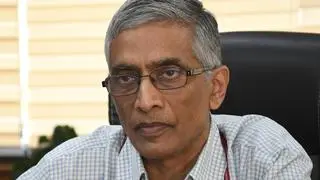Adopting a cautious approach, India has informed World Trade Organisation (WTO) members that it is looking at opening up its legal services sector to foreign lawyers and law firms, but would do so only after consultations with all stakeholders, including the Bar Council of India (BCI).
Moreover, the benefits of an open legal sector would only be provided to those countries that offer similar treatment to Indian lawyers and firms, India said in response to questions posed by WTO members based on its trade policy review report.
A Committee of Secretaries (CoS) headed by the Cabinet Secretary is considering a Commerce Ministry proposal to open up the legal sector in a phased manner, beginning with non-litigious services.
Taking its timeHowever, it is taking its time in finalising the proposal as it was initially not supported by the Law Ministry and the BCI — the statutory body regulating legal services in India — is yet to decide on the position it would take on the matter.
“We have made it clear to all WTO members that while we may open up our legal services sector in some time, it would not be open for all services and for all countries.
“We will negotiate separate agreements with individual countries and only offer access to our market if we get the same in return,” a government official told BusinessLine .
The proposal being considered by the CoS recommends that international arbitration and mediation services and only advisory or non-litigious services in home country law of the foreign lawyer, third country law and international law may be allowed.
It proposes that foreign lawyers could be permitted to practise in India in conjunction with Indian lawyers, as a joint venture, with a cap on foreign participation.
The Commerce Ministry is holding meetings with members of the BCI and the Society for Indian Law Firms, a representative body of corporate law firms, trying to convince them that the business of local lawyers will not get affected by the proposed opening up.
Periodic reviewsThe WTO reviews the trade policy of all members after a gap of two years, four or six years, depending on how much each member trades, to analyse their economic performance and trade policy and performances.








Comments
Comments have to be in English, and in full sentences. They cannot be abusive or personal. Please abide by our community guidelines for posting your comments.
We have migrated to a new commenting platform. If you are already a registered user of TheHindu Businessline and logged in, you may continue to engage with our articles. If you do not have an account please register and login to post comments. Users can access their older comments by logging into their accounts on Vuukle.